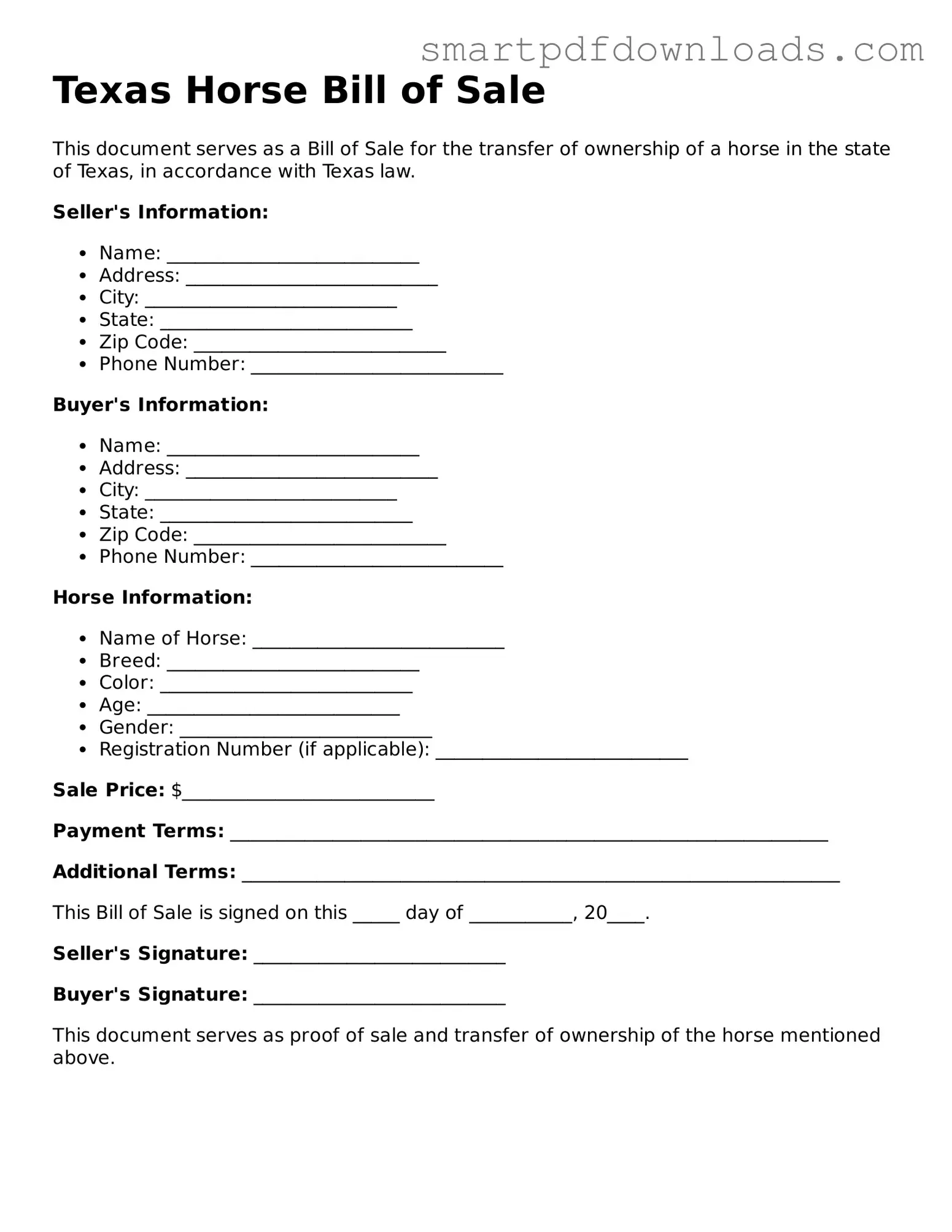Legal Horse Bill of Sale Form for the State of Texas
The Texas Horse Bill of Sale form is a legal document used to transfer ownership of a horse from one party to another. This form outlines important details such as the horse's description, sale price, and the signatures of both the buyer and seller. Understanding this form is essential for ensuring a smooth transaction and protecting the interests of both parties involved.
Edit Horse Bill of Sale Online

Legal Horse Bill of Sale Form for the State of Texas
Edit Horse Bill of Sale Online

Edit Horse Bill of Sale Online
or
⇓ PDF File
Finish the form and move on
Edit Horse Bill of Sale online fast, without printing.